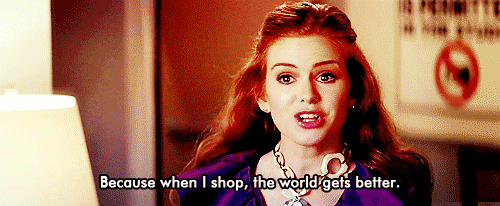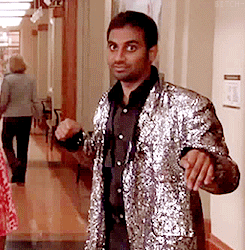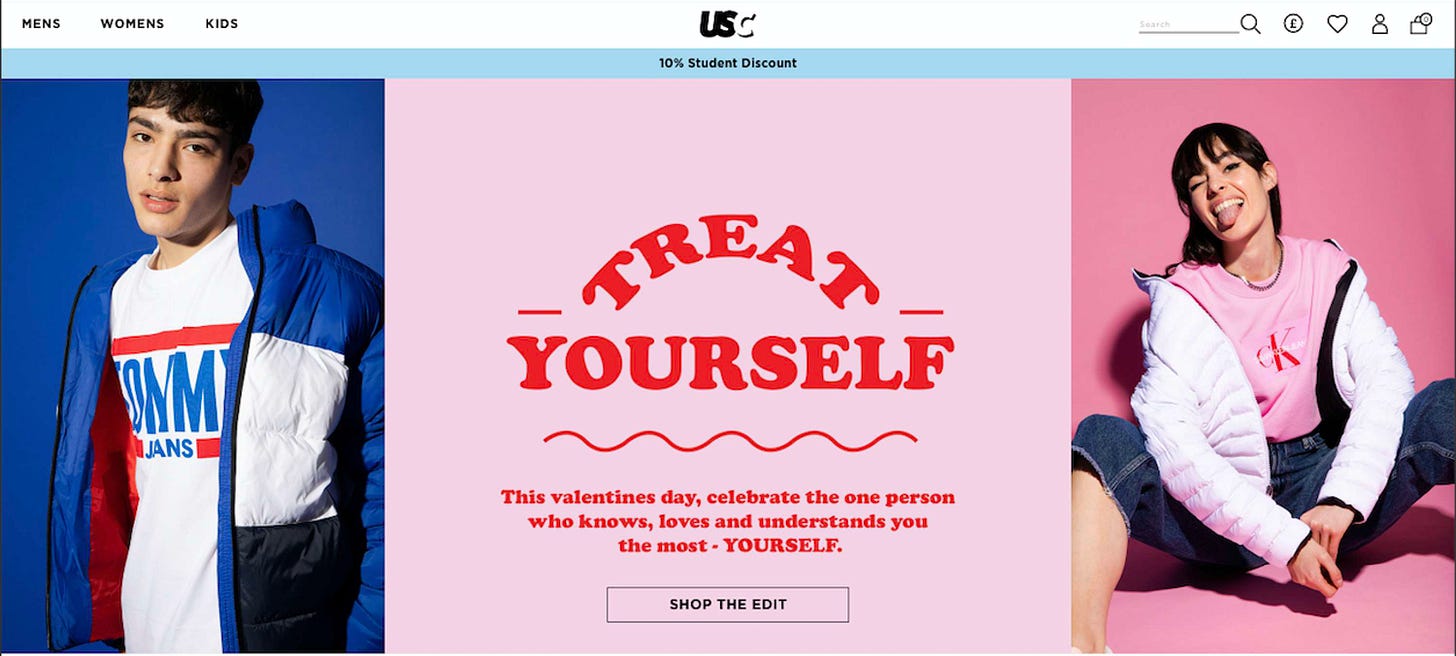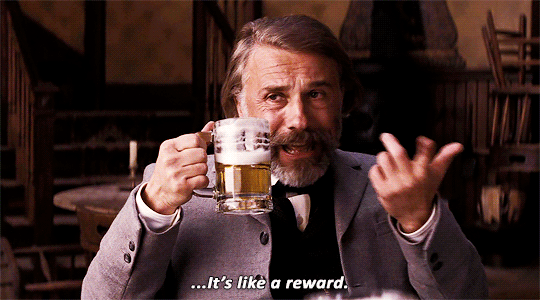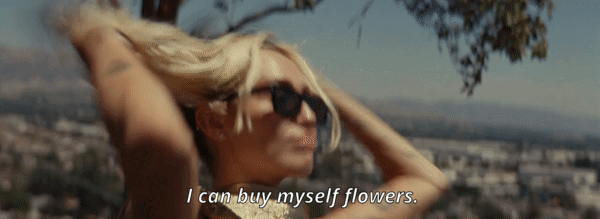🛍 The trend towards reward consumption
Why we are rewarding ourselves more and more, what this has to do with Miley Cyrus "Flowers" and how we can work with it in marketing.
Hello 👋 My name is Florian Schleicher and this is the FutureStrategies newsletter from FutureS. I'm glad you're reading along 💚
Today I want to reward myself.
Why?
Because I'm making good progress because I'm working hard because I have a small success to celebrate.
And what do I reward myself with?
With consumption. A purchase.
Now we can talk about why I, like many others, have not learned to reward myself other than with consumption and purchases.
But that's a different - psychological - topic.
Like me, many others, especially young people, feel the same way.
“Whether someone is depressed, frustrated or bored, impulse buying appears to be an effective tactic for breaking out of an undesirable mood state.”
A quick data check:
62% say they rewarded themselves more in 2022 than in 2019.
68% feel that rewarding themselves multiple times a week makes them feel special.
The average person rewards themselves 6x per month.
Between 2019 and 2020, there was a 205% increase in self-care searches on Google.
The self-care industry has grown from $10 billion in 2019 to $450 billion in 2020.
So let's get on track with this trend today.
🎁 What are rewards?
I find a definition from the philosophy of law very good:
"A reward is an equivalent for a desired behavior and/or a completed performance, for producing a product or achieving success."
This reminds me directly of the saying "first the work, then the pleasure".
For most people, "rewards" are pleasant, of high quality, and associated with a fun factor.
In other words, many things are not commonplace for us.
What do people particularly like to reward themselves with?
According to a study by OnePoll, we most like to treat ourselves to food (43%) and clothing (35%). Many look for experiences like vacations or live events and concerts (31%).
But if more and more people are rewarding themselves more often, are they all working that much harder?
This question brings us directly to the next point:
💝 Treat Yourself - but why?
The favorite question of all strategists is sure "Why?".
So here: Why are rewards currently increasing strongly and boosting shopping behavior?
Consumer behavior has changed as a result of CoVid. In uncertain times, there is a trend toward nostalgia, but also toward rewards.
“We’ve realized we don’t have to wait for special occasions, birthday gatherings, or even the weekend to enjoy life or a glass of your favorite wine. Importantly, indulgences that bring you joy, shouldn’t have to break the bank.”
Michele Truchard, Co-founder of JaM Cellars
Just boosted by the pandemic, young people want to reward themselves more often.
Why? Because no one knows where the future is headed.
So it's better to have a good time today than maybe not tomorrow.
Young generations are torn between the urge for hedonism and a currently financially difficult situation, and with the rewards, they take back a bit of control:
“It has a lot to do with power. Going shopping puts you back in the driver’s seat when something happens beyond your control. Research also shows spending can ease feelings of sadness. The act of making purchase decisions eased lingering sadness.”
Grief is associated with feelings of helplessness - not being able to control what is happening around you, writes the psychologist. Simply participating in shopping-related decisions, such as buying or rejecting an item, has a positive effect on the psyche.
This mental state can also make people price-blind. One study found that people who were sad were willing to pay up to 30% more for a product.
So in summary, we can say that a time when we felt we had little control over our lives followed by ever-increasing rates of depression leads to reward buying in people.
“Therefore, they react to events and ideas that reduce their control through compensation strategies. One might be purchasing luxury goods that signal a high social status, to boost our feeling of power. Secondly, escapism functions as a potential driving force as well.”
Lucia Malär, Professor of Marketing at the University of Berne
So it's an escape from the here and now.
And this need lives on even after CoVid and in times of inflation, as my friend Patrick, who works for several high-end alcohol brands, confirmed to me in our last conversation:
"Despite macroeconomic uncertainty, consumers are still looking for high-quality products with inspiring brand stories and the purpose of treating themselves and others to small moments of luxury."
Patrick Emrich, Senior Brand Manager Diageo
Which is perhaps even associated with an attitude of defiance. Or to put it another way...
😈 Revenge buying
What is behind this very dramatic term?
“As the name implies, revenge shopping is consumers making up for lost time with an increase in spending.”
Blake Morgan, Customer Experience Futurist
This phenomenon is well illustrated by this example:
"When the stores reopened in China, a figure went around the world that seemed almost utopian and yet understandable at the same time: allegedly, the Hermès boutique in Guangzhou, China, took in more than 2 million euros on the very first day after months of closure due to Corona."
Otto Husten, journalist
Revenge buying is thus triggered by a suppressed need.
"After fear comes overindulgence. As soon as people realize that risks are minimized and the future shines brighter, many would consciously turn to beauty again."
Hans-Georg Häusel, consumer psychologist
I really like the example from China. Even if it is extreme, it shows the power behind the need to reward ourselves through consumption.
And even though I think we as humans need to (and can?) learn to reward ourselves differently, even as a marketeer who knows all this, I am a victim of marketing.
This brings us to the final point of the day.
🙏 Give me something good
So how can we use this insight for our marketing?
I have two thoughts on this:
Affordable Sustainable Luxury
Although they face greater financial pressures than some previous generations, young people are willing to spend money on products and services that match their values and priorities.
66% of consumers are willing to pay more for sustainable products.
So Sustainable Luxury is definitely an area that is very exciting for Impact Marketing.
“The key is connecting with consumers on a deeper level, not only through products and launches, but also through the brand's goals and its role in society. That role has to be a sustainable one, which flies in the face of the motivations behind revenge buying."
Véronique Yang, Managing Director BCG Shanghai
Luxury products in particular experience a boom in times of inflation; low-income target groups in particular want to reward themselves for uncertain, stressful, and shocking times.
(… there was a) “300% increase in sales at the Hermès boutique in New York the week after 9/11, a similar increase in Hermès sales in Tokyo after the tsunami, and in Paris after the Bataclan attack in 2015. Luxury is a kind of safe haven that helps us cope with crises.”
Frédéric Monneyron, author l’imaginaire du luxe
A current example from pop culture is Miley Cyrus with her song "Flowers" - reward, self-care, and luxury in one - fully hit the zeitgeist.
And smart florists incorporate the issue directly and subtly into their communications.
It’s you - Focus on the target group
Especially in the self-care market, phrases such as "reward yourself" and "time for yourself" are being used more and more.
In marketing, we can focus on precisely this individual, personal approach. In words, images, and feelings that we transport.
One brand that is doing this particularly well right now is LEGO. Yes, that's right, the toy brand has identified a new target group: Adults.
This campaign deliberately addresses the exhausting daily routine and the reward. A perfect mix from my point of view (which I also fall victim to myself).
What does it take?
First, we need to have a clear picture of the needs of our target group and know whether they are also open to the trend for rewards.
Over the years, the market research institute GfK has identified and classified different types of consumers. This research shows that the "Safety Seeker" group is reluctant to plan. The group of open-minded "Trend Surfers," on the other hand, who are interested in new things, are an attractive target group because they plan to spend more in all categories.
"At the moment, it is particularly important for retailers and manufacturers both to know about the short-term development of individual categories and to know their own customers precisely - this is the only way to meet their needs even in volatile times like today."
Petra Süptitz, Director Consumer Insights GfK
And that doesn't work for all product and service categories either. Certainly few people have ever rewarded themselves with a kitchen roll.
🏁 Back to the start
“It’s about thrill, excessive hedonism, a step beyond the ordinary and the commonplace. Instead of revenge, I’m more inclined to call it gratification and self-celebration: we survived, we held out, we made it through, this is our richly deserved reward. This is really one of the main motivations behind the consumption of luxury goods: celebrating one's own triumph.”
Thanks for reading along!
PS: You can also read this posting in German.
More reading material wanted?
👩🎤 Influencer-Marketing - What role do influencers play in the marketing mix and how do successful collaborations come about?
⭐️ The formula for the perfect pitch - How do I present ideas successfully? A guide in 3.5 steps.
🌐 5 tips for successful landing pages - How do you create good landing pages that not only look nice, but also help achieve marketing goals?
🗞 Using PR for start-up success - Interview with storyteller Gregor Fauma - including the 5-sentence model, tips on pitches and successful PR




